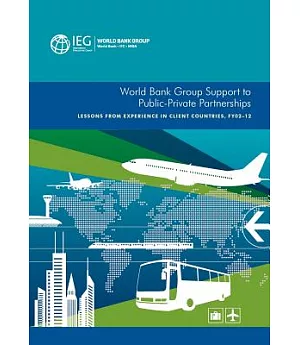Public-private partnerships (PPPs) are long-term contracts between a private party and a government agency that strive to provide a public asset or service in which the private party bears both
some risk and some management responsibility. If implemented well, PPPs can help overcome inadequate infrastructure that constrains economic growth, particularly in developing countries. The
use of PPPs has increased in the last two decades; they are now used in more than 134 developing countries, contributing about 15-20 percent of total infrastructure investment. The World Bank
Group has expanded its support to PPPs through a wide range of instruments and services. During the last 10 years, its support has increased about threefold, to nearly $3 billion per year. The
Independent Evaluation Group (IEG) assesses how effective the World Bank Group has been in helping countries use PPPs. In the evaluation, IEG examines the relevance of Bank Group support, how
successful projects were, how the Bank Group coordinated support among its business lines (support to the public sector versus the private sector), and how it compares with the experience of
other multilateral development banks with PPP support. IEG distills lessons to apply to the Bank Group’s support of PPPs. Finally, IEG presents six recommendations that apply to both the
organizational and the operational aspects of this work.





















